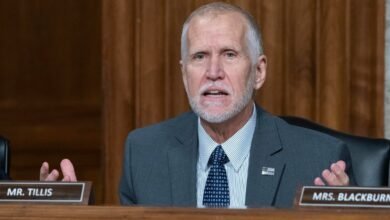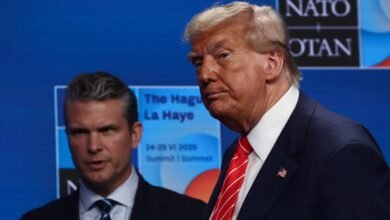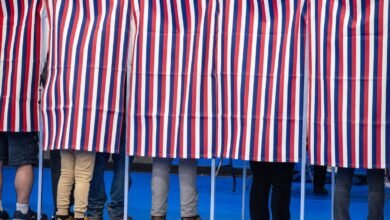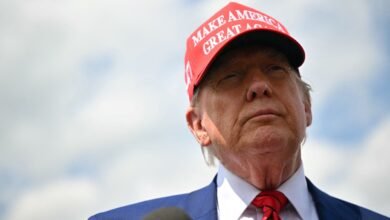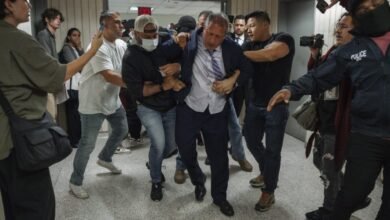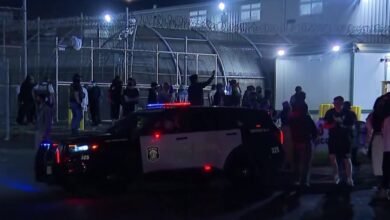
Judge in Trump’s Jan. 6 case rejects ‘strained’ argument about his false 2020 election claims – NBC New York
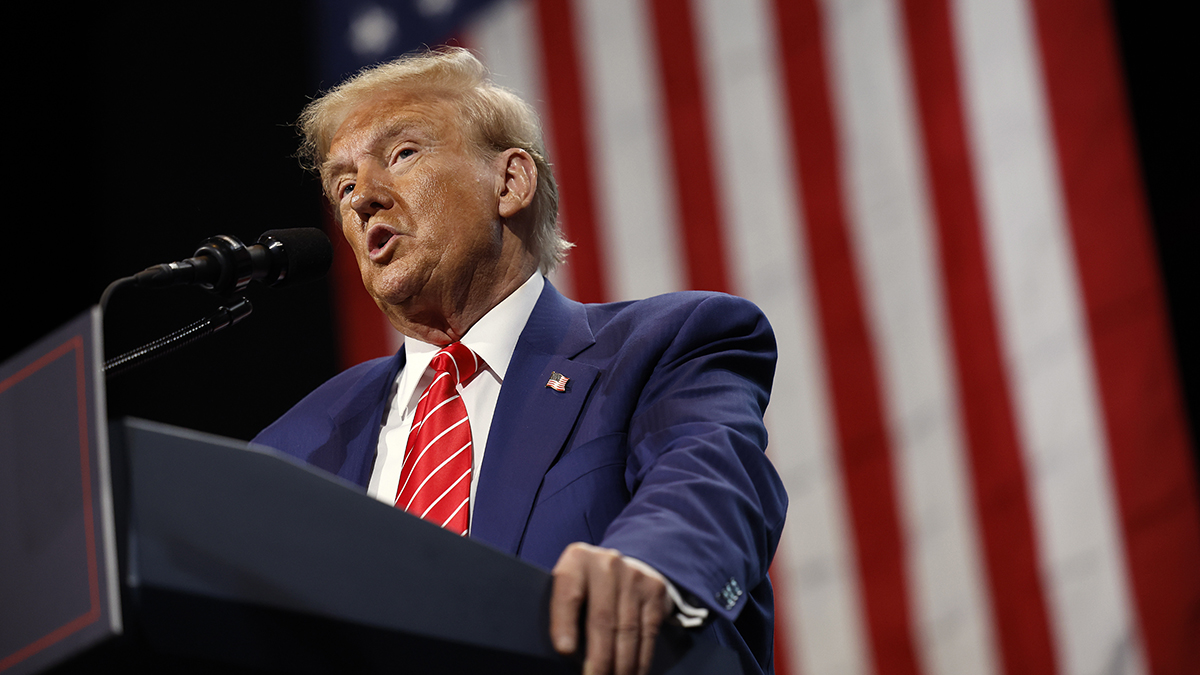
A judge overseeing the federal election interference case against Donald Trump on Wednesday rejected the former president’s claim that he was actually concerned about foreign influence and interference in the 2020 election — rather than the false claims about domestic voter fraud that he repeated in the weeks before the Jan. 6 attack.
There is “no reason to believe” that Trump’s purported worries about foreign influence in the 2020 election “animated his concerns at the time,” Judge Tanya Chutkan wrote, adding that Trump’s theories that such evidence would be relevant to his criminal case “do not withstand scrutiny.”
Trump’s team had asked Chutkan to compel prosecutors in special counsel Jack Smith’s office to provide them with additional evidence, including “all information” about foreign interference and influence efforts in the 2020 election. It’s part of the Trump team’s attempt to present Trump’s concerns about mass voter fraud — which were roundly rejected by independent arbiters and courts — as “reasonable” and grounded in reality.
The defense has maintained that Trump’s false election fraud claims “were plausible and maintained in good faith” and “not unreasonable at the time,” even though many Jan. 6 defendants have since lamented that they were gullible enough to believe Trump’s lies, like Trump’s false claim on Jan. 6 that 139% of voters had cast ballots in the majority-Black city of Detroit.
Chutkan pushed back on Trump’s claims Wednesday in an order that rejected all but three of his 14 categories of requests for additional evidence.
About his request for evidence on foreign interference, Chutkan noted that the claims of election fraud Trump made as part of the alleged criminal conspiracy were “totally unrelated to foreign cyberattacks,” pointing to language in the superseding indictment that states that Trump’s allegations of fraud revolved around his false claims that “large numbers of dead, non-resident, non-citizen, or otherwise ineligible voters had cast ballots, or that voting machines had changed votes.”
“At best, then, Defendant might attempt to use information about these network breaches to argue that because of generic foreign cyberattacks unrelated to election results, he had reason to worry that foreign adversaries would interfere in the 2020 election, which in turn somehow gave him a good-faith basis to claim that domestic actors had perpetrated outcome-determinative election fraud in non-cyberattack forms,” Chutkan wrote. “That logic is too strained to meet Defendant’s burden.”
A federal grand jury returned a superseding indictment in August charging that Trump schemed to use a campaign of “unsupported, objectively unreasonable, and ever-changing” claims of voter fraud to overturn his election loss and maintain the presidency.
Trump has pleaded not guilty to the four charges against him: conspiracy to defraud the United States, conspiracy to obstruct an official proceeding, obstruction of and attempt to obstruct an official proceeding and conspiracy against rights.
Trump’s state of mind is essential to the case, and Smith’s team has alleged that Trump “knew” his election lies “were false.”
Chutkan also rejected Trump’s request for evidence on “undercover agents and individuals acting at the direction of official authorities at the Capitol on January 6,” a request that aligns with the false-flag narrative promoted by some conspiracy theorists — including some Republican members of Congress — about Jan. 6.
Trump, she wrote, “does not provide anything more than speculation that there even were any such undercover actors at the Capitol on January 6” and there was no reason to compel the government to search for and produce that information.
Chutkan also rejected Trump’s request for communications by “members, relatives, or associates of the Biden Administration,” saying the “sweepingly broad and undefined” request “utterly fails” to meet the rigorous standard required for Trump to be able to make a selective prosecution claim.
The judge said that Trump was entitled to three categories of information: materials reviewed by former Director of National Intelligence John Ratcliffe before his interview with the government; records about security measures that were conveyed to Trump during a meeting with Gen. Mark Milley, then chairman of the Joints Chief of Staff, and acting Defense Secretary Chris Miller; and evidence related to the unauthorized retention of classified documents by former Vice President Mike Pence, which Trump’s team could use to potentially undermine Pence’s credibility if he were to testify. The Justice Department declined to press charges against Pence in the classified documents case.
The Supreme Court gutted part of Smith’s case over the summer with its ruling on presidential immunity, but the case against Trump is — very slowly — churning toward a potential trial. The likelihood of the case going to trial plummets if Trump wins re-election; he is widely expected to replace Attorney General Merrick Garland with a loyalist who could dismiss the case.
Earlier in the day, Smith’s team submitted a filing arguing that Trump bears responsibility for the Jan. 6 attack on the Capitol, saying Trump “willfully caused his supporters to obstruct and attempt to obstruct” the certification of President Joe Biden’s 2020 presidential victory.
In a statement earlier Wednesday, Trump campaign spokesman Steven Cheung said that “Crazed Liberals throughout the Deep State are freaking out” at Trump’s standing in the 2024 race, and that “this entire case is a sham and a partisan, Unconstitutional Witch Hunt that should be dismissed entirely.”
This story first appeared on NBCNews.com. More from NBC News:
Source link


